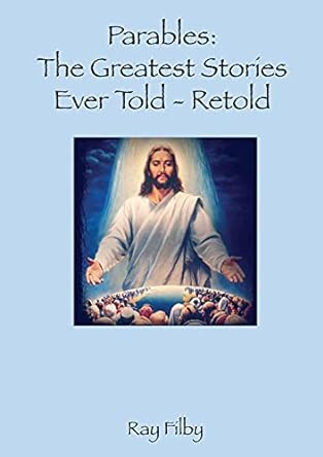
Parables, the Greatest Stories ever told - Retold

There can be little doubt that Jesus was one of the greatest, if not the greatest raconteurs the world has known. He was followed by crowds around Galilee, who came not just to experience or witness the most amazing miracles but to hear stories which were both interesting and full of meaning. Sometimes however, the meaning remained concealed. I rather feel that in recording Jesus’ parables, the evangelists used their considerable skill at précis so that they just conveyed the words carrying the deep meaning without including any extra verbiage. Yet I feel sure that there must have been extra words spoken for crowds would hardly travel half a day’s journey to hear a story that took no more than a very few minutes to tell. Jesus stories were surely more than mere sound bites.
To provide an example which shows the evangelists’ skill at condensing a report, let us look at the proceedings of St. Paul’s trial before the Roman Governor, Felix. The High Priest, Ananias, had secured the services of a skilled lawyer named Tertullus to present their case. Because the case was so important to them, they had probably chosen the best lawyer available and no doubt, he would have charged well for his services. Tertullus opens the case as follows.
Acts ch 24 v 2-8 We have enjoyed a long period of peace under you, and your foresight has brought about reforms in this nation. Everywhere and in every way, most excellent Felix, we acknowledge this with profound gratitude. But in order not to weary you further, I would request that you be kind enough to hear us briefly.
We have found this man (Paul) to be a trouble maker, stirring up riots among the Jews all over the world. He is a ring-leader of the Nazarene sect and even tried to desecrate the Temple; so we seized him. By examining him yourself you will be able to learn the truth about all these charges we are bringing against him.
Lawyers are not noted for being concise in their utterances. Tom Wright, the former Bishop of Durham, suggests in his book ‘Acts for Everyone, Vol. 2’ that it is unlikely an expensive lawyer, wishing to impress his paymasters that he was worth the fat fee that he was being paid, would have opened his case so concisely. However, the evangelist, St. Luke, spares us the padding and just gives us the basics which include the undeserved flattery designed to ensure that the priests would receive a favourable outcome to their petition.
I suggest that if Luke so abbreviates an important legal speech, might not he have similarly abbreviated the parables. If so, what were the extra words surrounding the kernel of the teaching which made Jesus’ stories so arresting to listen to? These are lost and no-one has attempted to speculate on how the original stories might have sounded because it would be bordering on blasphemy to put words into the mouth of Jesus.
I have attempted to avoid this form of blasphemy by retelling the parables by presenting the situations arising as being set in modern times with contemporary characterization.
At the end of each parable are a series of related questions which could either be considered during one’s own time of private prayer and Bible reading, or they could be used in the context of a group Bible study. Some of the longer parables are also presented in an abbreviated form if they are to be read out in the context of a group Bible study.


